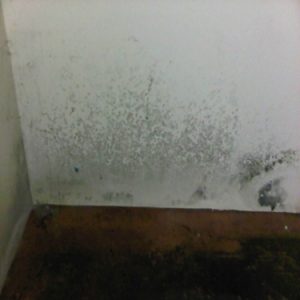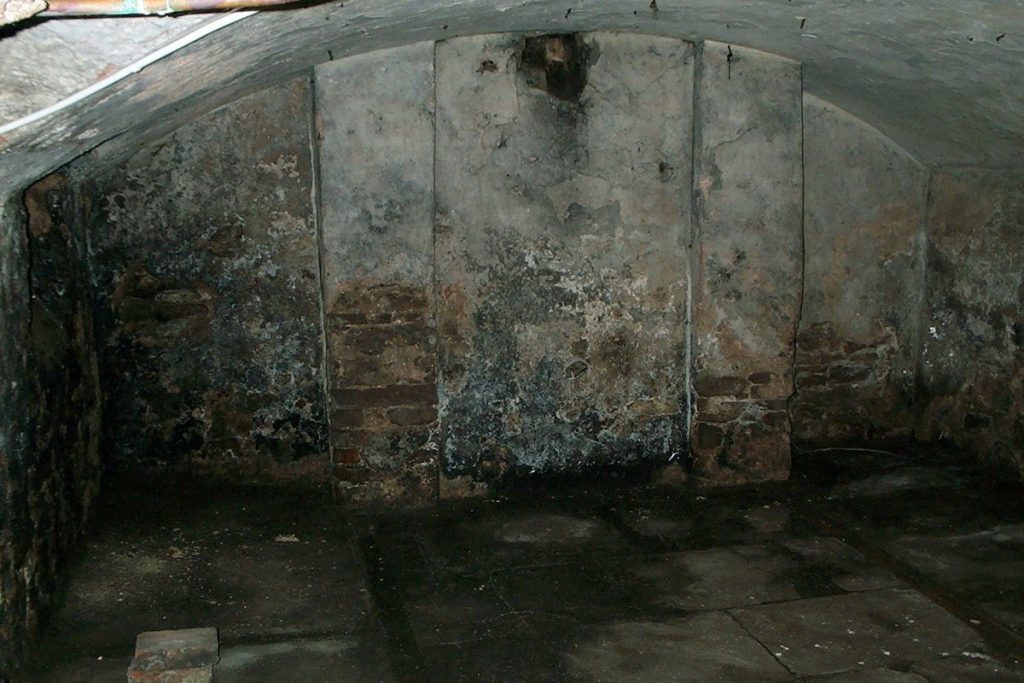
Any homeowner with a damp basement is never happy about it. In some cases, a homeowner will choose to stay out of the basement entirely whereas in others, homeowners simply close the door from the basement to the main level because they can’t stand the musty smell in their damp basement.
A damp basement is always the result of the presence of water. With very few exceptions, a damp basement is also a leaking basement. Even if basement windows are opened to improve air circulation and to introduce fresh air, or a dehumidifier is used in your basement, all that you can hope to do is control the dampness in your basement. However, to really solve the problem once and for all, your leaking basement must be addressed.
It is easy enough to determine whether a damp basement requires that action be taken. If the musty smells and odors are driving you crazy, then you really have no choice other than to deal with the leaking basement. Although musty smells are common in damp basements, homeowners often feel this basement dampness as soon as they walk downstairs. We’ve met homeowners who cannot handle a damp basement at all and in some cases, people have allergic reactions to their damp basement. If you are in doubt as to whether or not your basement is too damp, it is easy to make such a determination by measuring the moisture content of the basement air, and this is accomplished by measuring the relative humidity. By simply using a high quality hygrometer, relative humidity can be measurable and, therefore, quantifiable. A truly professional waterproofing contractor will have a hygrometer available to measure the relative humidity in your basement, thus eliminating any doubt you may have as to whether or not your damp basement is excessively damp. If you have a damp basement and desire to use your basement as a living space, you must deal with the leaking basement or you risk affecting your health.
Once it is been confirmed that your damp basement is caused by a leaking basement, you have two choices: either eliminate the leaking basement or ignore it, thereby losing the use of this valuable living space in your home.
A damp basement which is unfinished will be less offensive than a basement that is finished. This is because finished basements are typically framed using wood and many have a wooden subfloor. A leaking basement will cause the framing behind your finished walls and your wooden subfloor to rot. It is this rotting wood as well as the stale damp air trapped behind your basement walls that is responsible for that musty smell. While some may argue that damp basements are normal, the fact remains that a damp basement is usually an unhealthy basement. A damp basement is generally considered to be unhealthy because excessive basement dampness correlates to high relative humidity. High relative humidity, in excess of 60%, sets the stage for mold growth behind your finished basement walls. The problem with a finished basement is that once there is mold growth behind the walls, not only does the leaking basement need to be addressed, but the rotten wood, drywall and moldy carpet need to be discarded. If a leaking basement is ignored for too long you will have no choice but to tear out the finished basement walls if you ever hope to be free of the musty odours.
There are many causes of a leaking basement; you can get more information concerning this by visiting our page on typical sources of basement leaks. In general, most leaking basements are the result of groundwater leaking through the basement walls; however, this is not always the case. A damp basement is extremely common with concrete block / cinder block foundations because the blocks fill with groundwater that slowly evaporates into the ambient air in your basement and, in so doing, increases the relative humidity. Given the nature of concrete block / cinder block foundations, an experienced waterproofing technician can unequivocally state that all concrete block/cinder block foundations are damp to some degree. To a lesser extent, leaking poured concrete foundations are also responsible for damp basements, typically from leaking foundation cracks and tie-rod holes.
There is hope, however. A leaking basement, which is the cause of your damp basement, can be repaired by at least two sound and proven basement waterproofing methods. Click the following hyperlink for more information on wet basement solutions.
